Fully Customizable
Two-way Integration
Exalate handles all your integration needs.
Craft even the most complex use cases, orchestrate business workflows, and sync any data securely.
Connect multiple applications within your organization or across company borders.





Sync Anything
Sync any or all custom and standard entities you want.
We mean it.

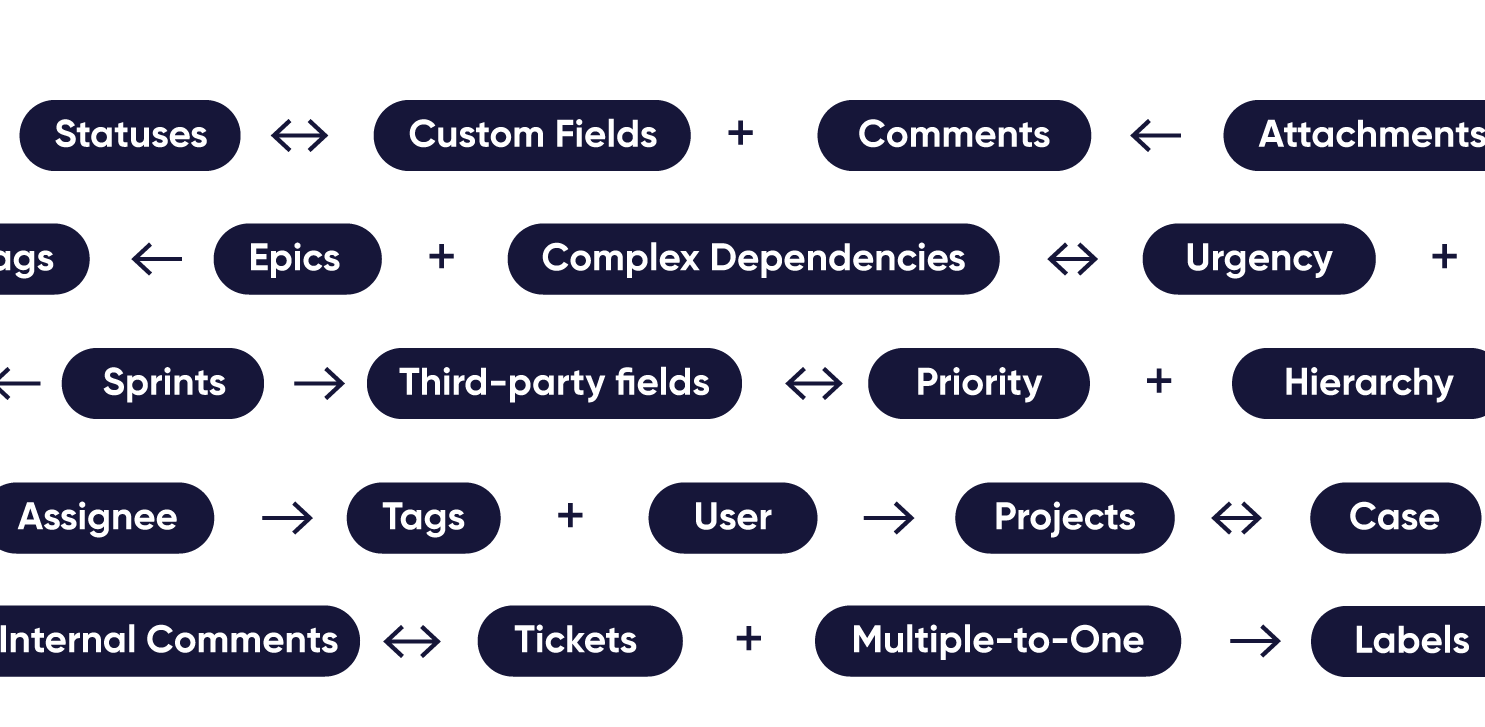
Real-time Sync
Establish a bidirectional flow of data and allow each entity to update the other in real time.
Update tickets, issues, sprints, … between teams for faster resolution times
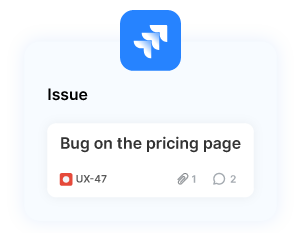
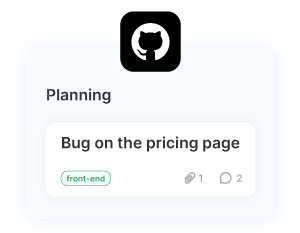

Map, Transform, and Filter Data
Create custom mappings with just a few lines of code (with Groovy scripts). Map statuses, issue types, and priorities the way you want.
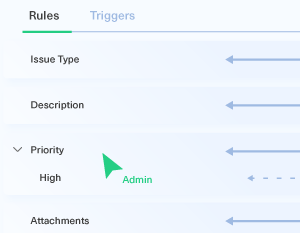
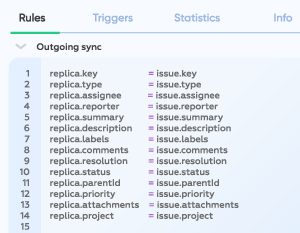

Connect Any Number of Instances
Connect multiple projects, instances, and platforms. Use different rules for each connection
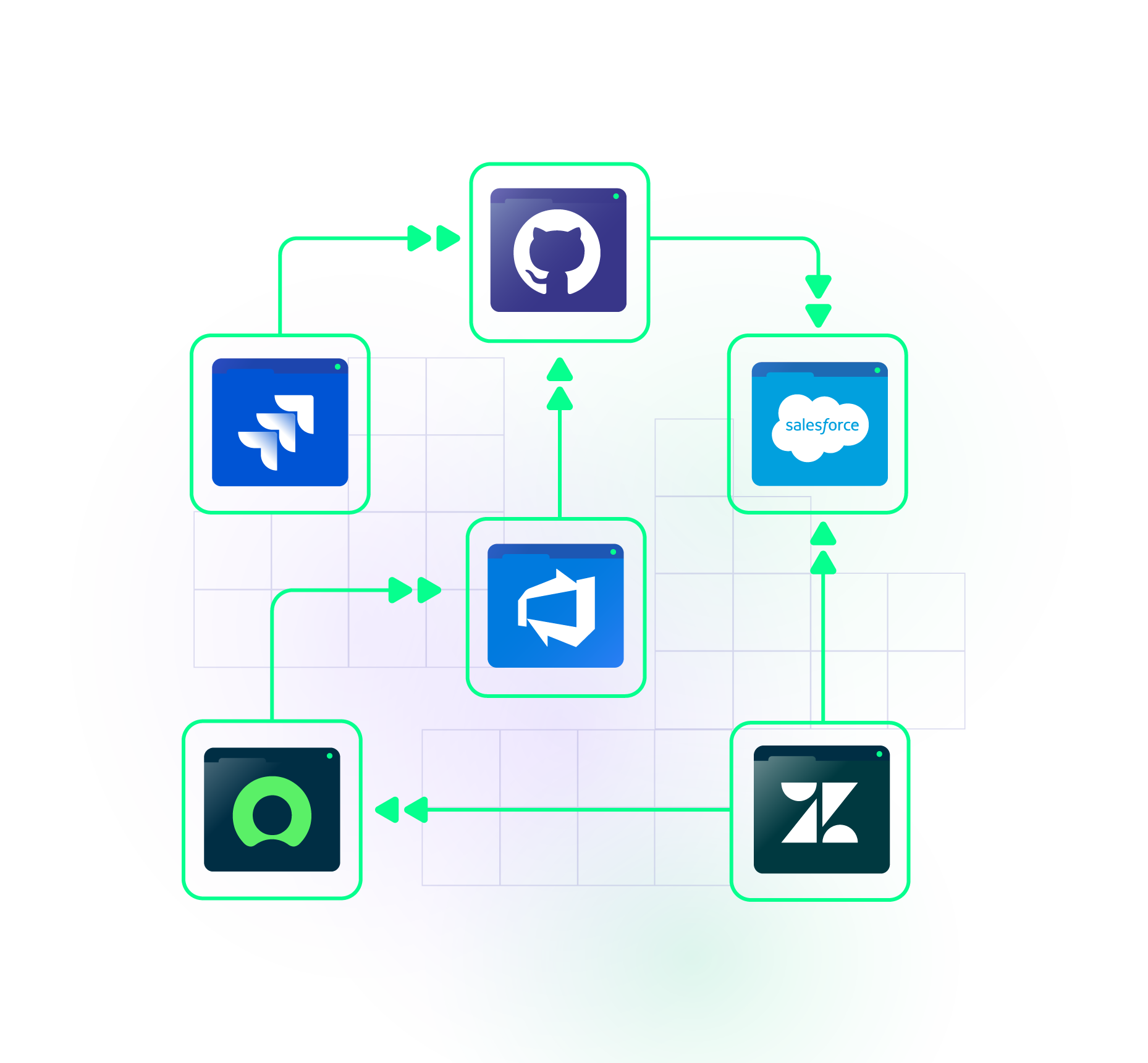
Automate the Sync with Triggers
Set various conditions for automatic synchronization.

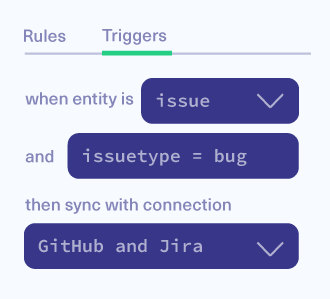

Unlimited Transactions & Entities
Exchange any number of tickets, issues, incidents, or work items within each of your connections.
Bulk Connect
Link multiple existing entities in one operation.
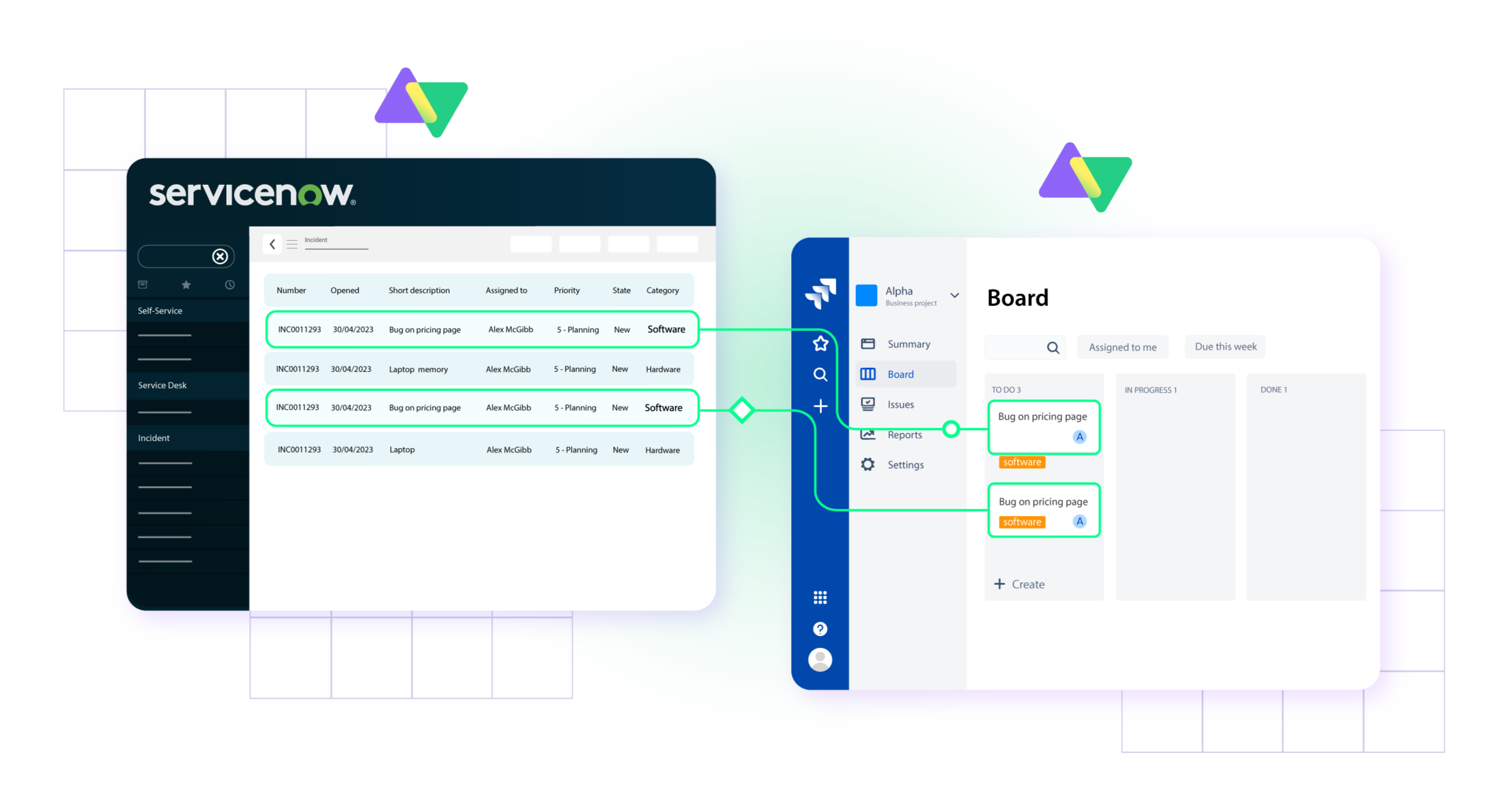
Secure by Design
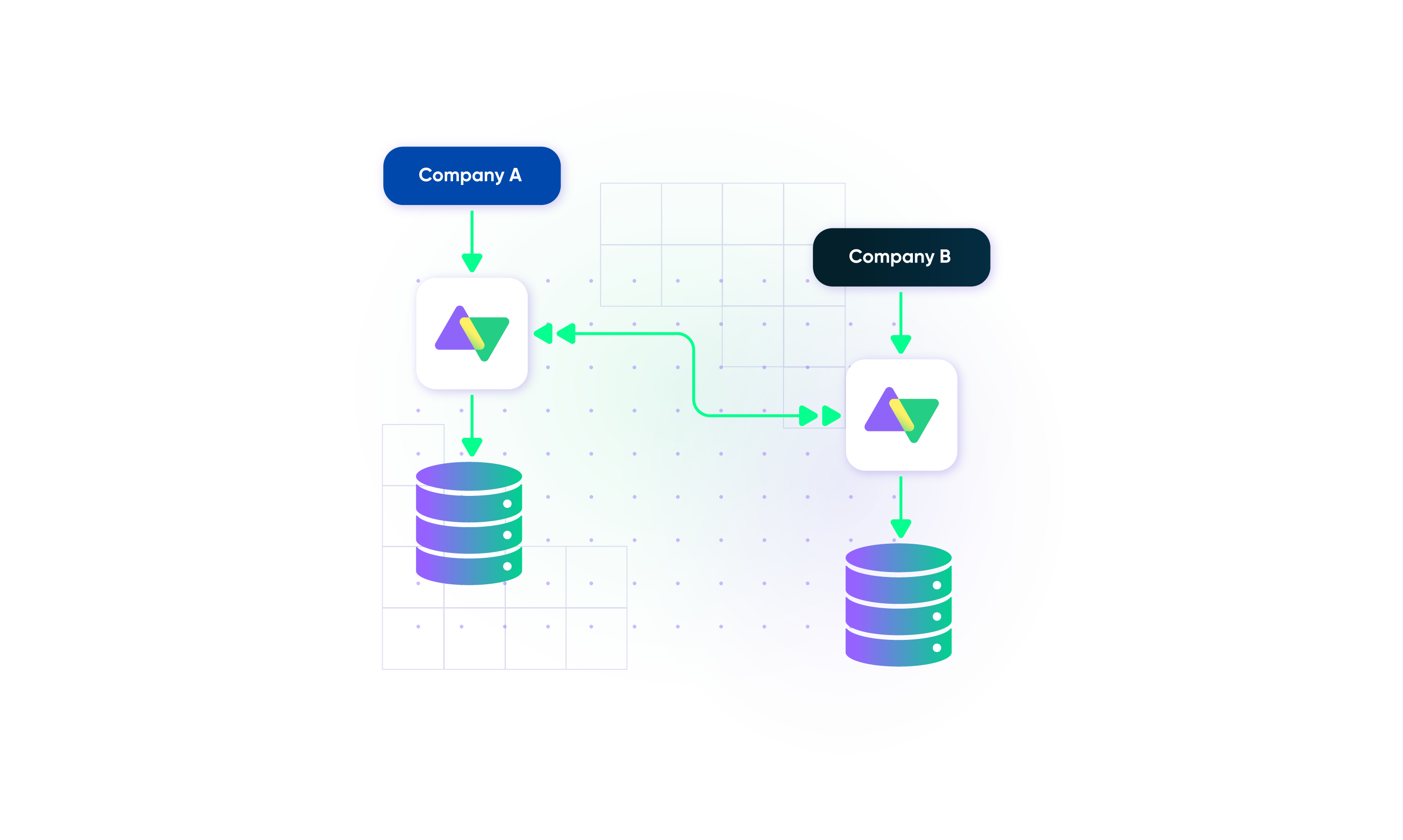
Decentralized Integration
Exalate is installed as a dedicated app on each system. Each tool-admin will be in complete control over what information they want to share with the other side, at all times.
Single-tenant architecture
Offers enhanced data isolation, ensuring advanced data security, complete control over customization, and reliable performance.
Handling Deleted Entities
Unlike other tools, if your integration partner deletes the twin entity on their side, Exalate will notify you that the destination item has been deleted.
Error Handling
Synchronization will be recovered automatically once the network connectivity problem is resolved. If the Exalate App has a problem, an admin will be notified.
Connect Private and Public Instances
Establish secure connections with instances behind a firewall
Set Up in Minutes, Not Months
Install
Connect
Customize
Synchronize
Now your instances are connected and will automatically exchange information instantly. Happy syncing!
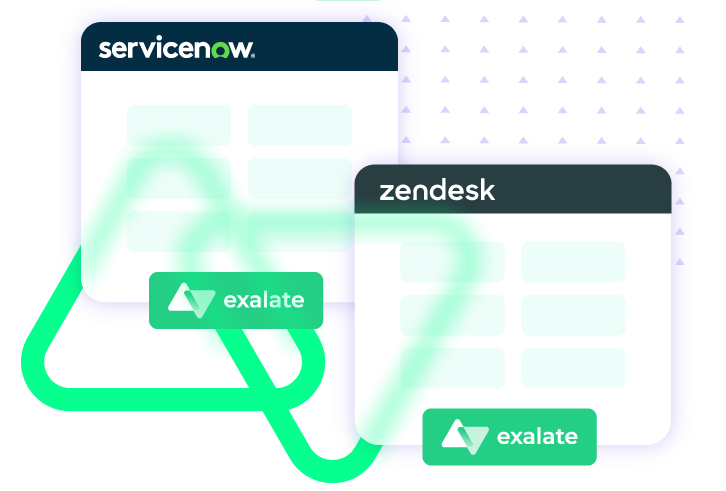
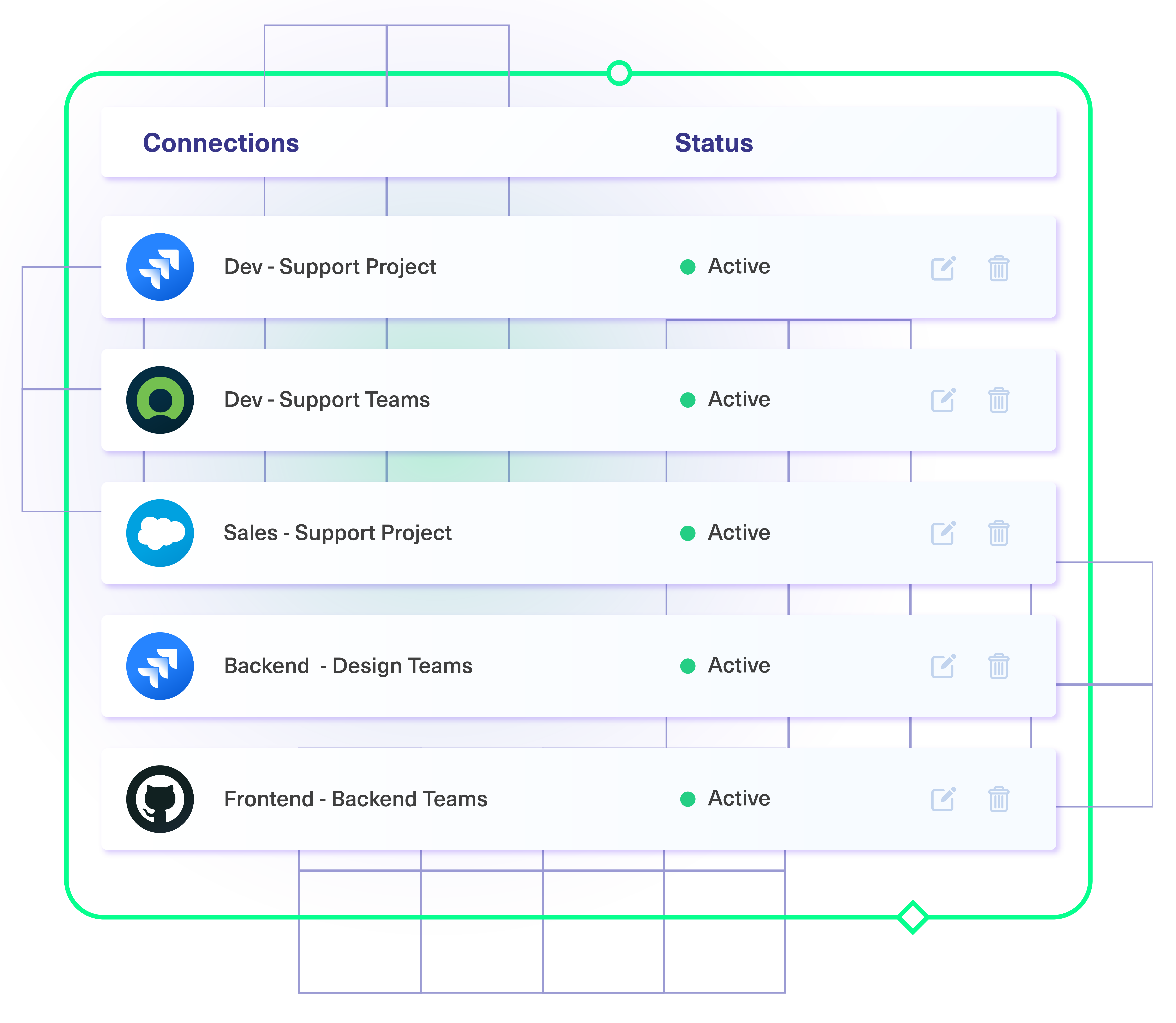
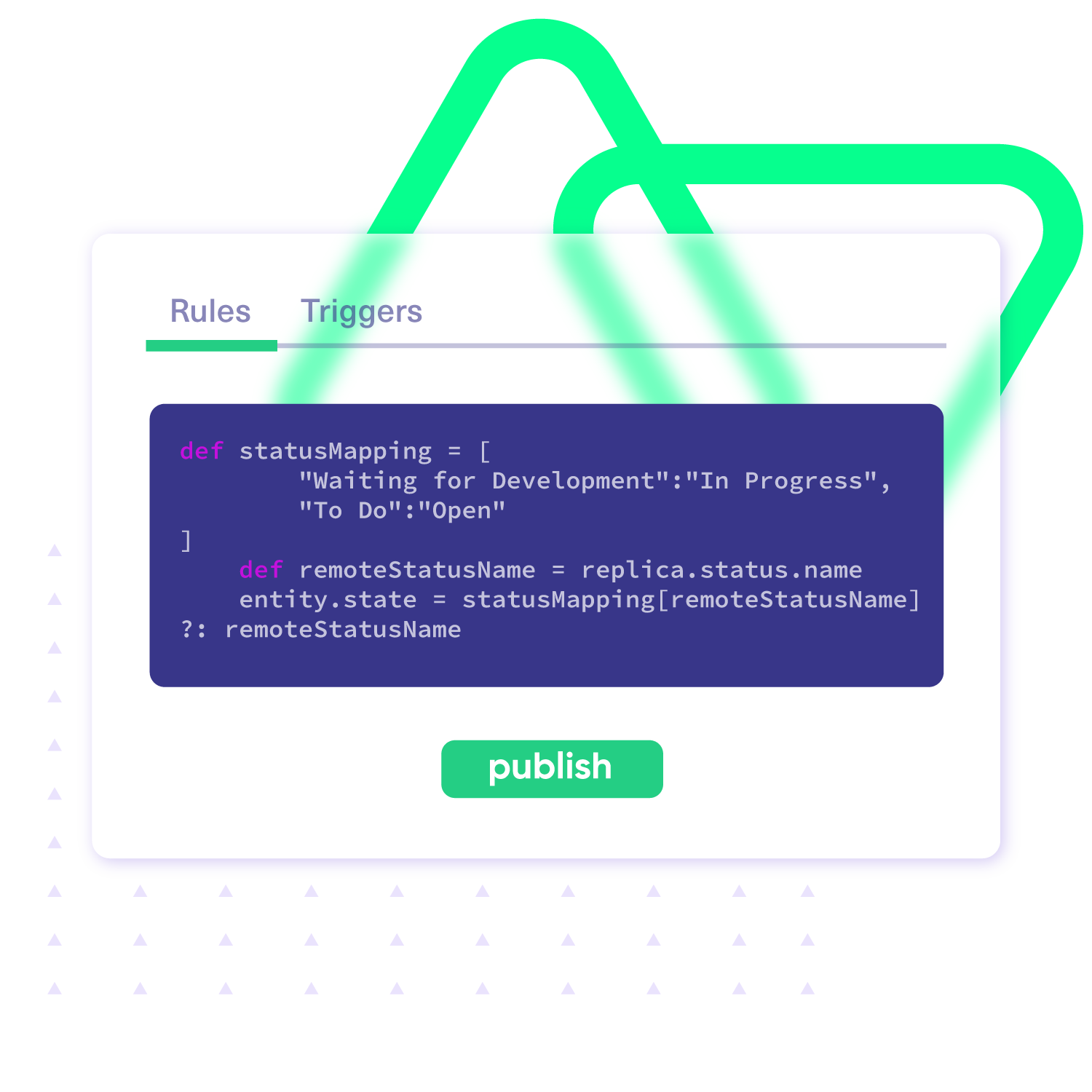
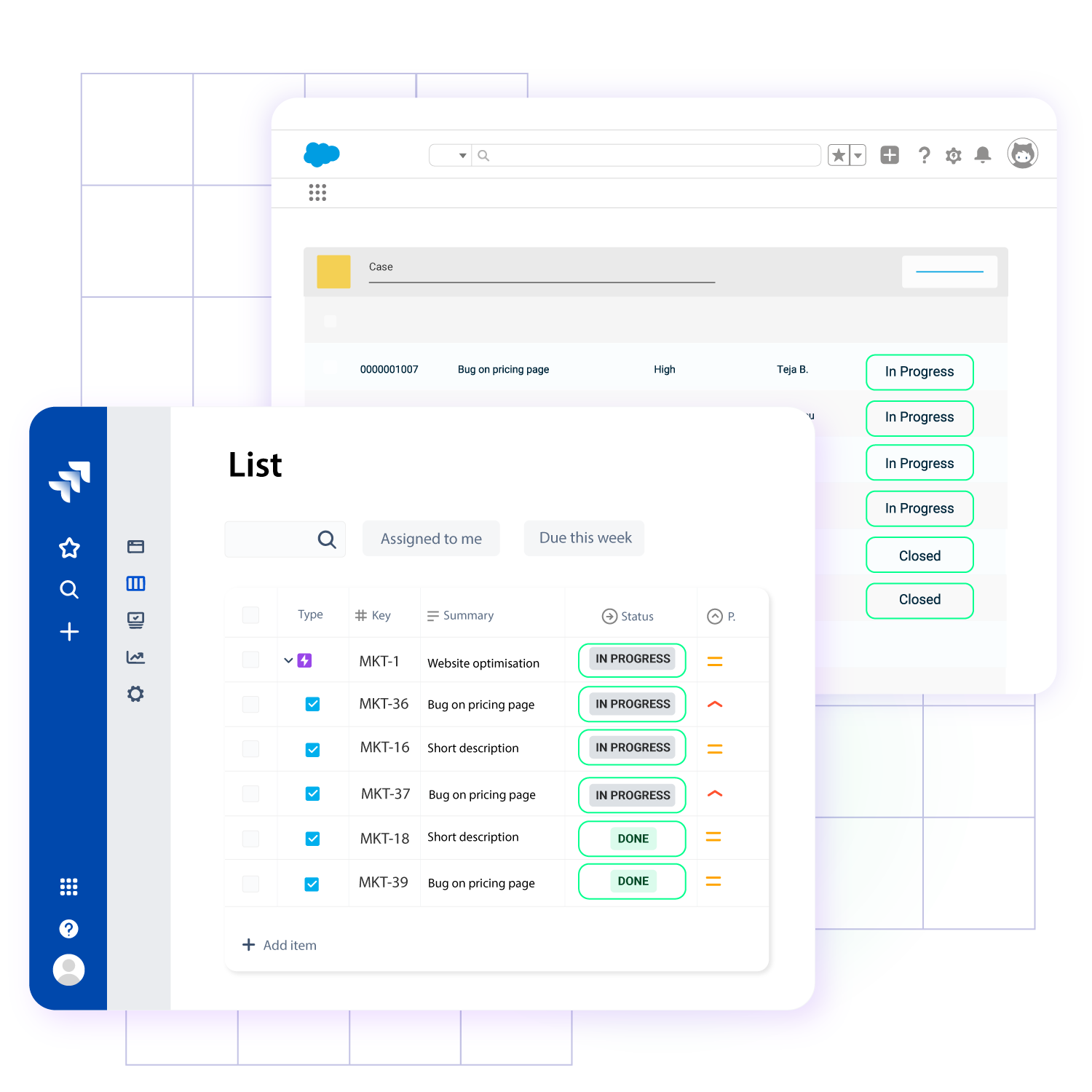
Accessible to Both Business and Technical Users
Your Code, Your Rules
Have granular control and full flexibility to craft your integrations with just a few lines of code.
- Exchange any data available via the connector's API
- Customize triggers using native query language
- Deepen, change, adjust existing connections easily
- Control outgoing and incoming data on each side
- Manage configs for all nodes using external script
Book a demo to see Exalate in action
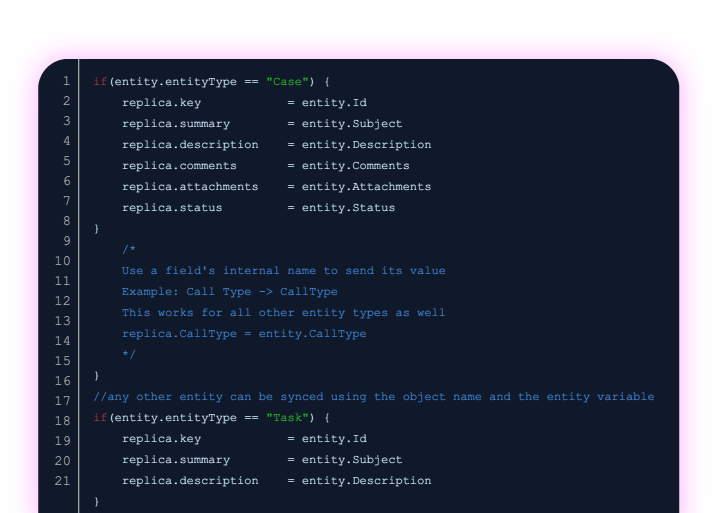
Visual Mode
Enjoy a seamless integration, no coding knowledge required.
- Drag-n-drop interface for faster, no-code set up
- Customize your synchronization rules from one side of the connection
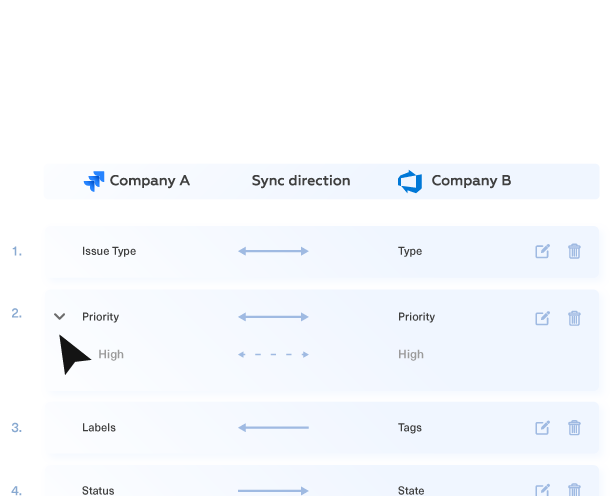
Basic Mode
For basic synchronization scenarios, a solution out-of-the-box.
- No-code, pre-made configuration
- Sync common fields (titles, comments, descriptions, attachments, IDs)
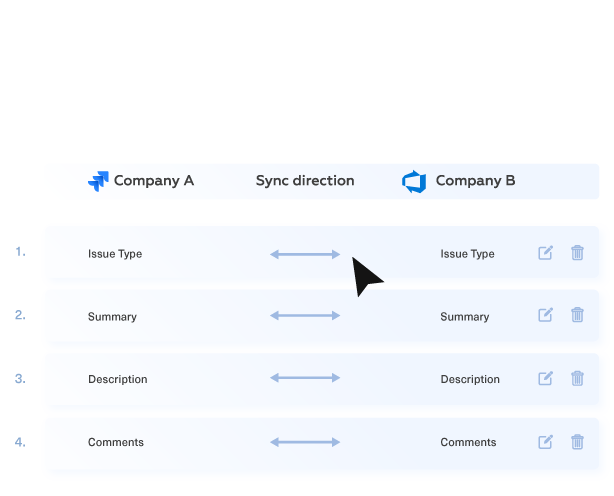
integration as a service
Outsource Your Integration Project
We know integration can be a lot of work.
Have an integration expert taking care of every aspect of your integration, from concept to full-scale operations.
- Custom development of connectors
- Managed integrations
- 24/7 support for critical issues
- Ready to scale
- Dedicated delivery manager
- Outsourced Internal IT Service Desk

FAQ
Exalate is flexible enough to cover almost all integration use cases through its Groovy-based scripting engine.
You can start with basic sync scenarios out-of-the-box or implement advanced use cases using the Script mode.
Essentially, you can sync any default or custom properties, or entities available via REST APIs, set custom mappings, add advanced logic to your integrations, and do much more.
Check out some use cases implemented with Exalate.
Exalate integrates Jira (Cloud and On-premise), Salesforce, Azure DevOps, ServiceNow, Zendesk, GitHub, and more. It can be deployed on docker for all these platforms. Start your free trial here.
You can connect these platforms in the following ways:
- One to one
- One to many
- Many to one
- Many to many
Or use a combination of the above models. You can also request a custom connector or outsource your entire integration to us.
Yes, we offer a 30-day free trial. We recommend you book a short call with our experts to discuss your use case and help you get started.
In case you feel Exalate is not the right fit, you can cancel your trial anytime, and you’ll not be charged.
At Exalate, keeping your data private, safe, and secure is the topmost priority. Hence, we follow the best-in-class security practices and procedures.
We have the following security measures in place:
- ISO 27001:2022 Certified
- Single-tenancy model
- Decentralized integration control so you decide what gets shared and what doesn’t
- Secure connection between instances via a shared secret, no need to share access credentials
- Authentication lies with the underlying platform
- GDPR compliant
- JWT-based tokens authenticate every data transfer request to ensure the destination instance always gets data from the expected source instance.
- Transport Layer Security (TLS) 1.3 (and 1.2)
To learn more about the complete security posture, have a look at the Exalate Security and Architecture Whitepaper.
Check out the data security and privacy statement here.
The price of your integration is calculated based on the number and type of platforms you need to synchronize.
For example, Jira Cloud (500 users) <> Azure DevOps Cloud integration use case would differ in price from, say a Salesforce <> ServiceNow <> GitHub Enterprise integration.
If you expect a very high number of synchronizations and you’d prefer to have Enterprise SLA and Solution Assistance, that would influence the price too.
If you’d like to know how much Exalate would cost for your use case, please ask us via live chat.
We offer Standard and Premier Support depending on customer needs and the running Service Level Agreement.
As part of Premier Support, we provide higher SLAs, shorter resolution time, configuration assistance, and optimized escalation paths.
Decentralized integration is a setup where each integrating party has independent and full control over information exchange.
You decide what needs to be sent to and received from the destination without a mandatory requirement to consult or inform the other side. This way, every platform admin can change their local configuration without affecting their integration partner’s configuration. Additionally, it increases your data security and avoids accidental access to shared information.
The systems in this arrangement are inherently distributed. This makes them loosely coupled, avoiding a single point of failure. It also enhances the maintainability and scalability of your integration.
Yes, the Exalate application needs to be installed on all integrating platforms. This means you need a valid Exalate license/subscription on both your instance and your partner’s instance.
Contact our sales team for more information about our licensing and pricing model.
Exalate has already been in use since 2014 at a large number of enterprise clients. Performance tests are continually implemented to assure there will be no noticeable load on both the app or the issue tracker.
For example, some of our customers continually processes, on average, 12.000 issues per month without experiencing any significant impact on the overall instance.
Yes, you can sync historical data using Exalate.
There are two ways to do this:
Bulk Exalate – Syncs all the existing data that fulfills the trigger condition (s). This option is available under the Triggers tab.
Bulk Connect – Connects existing entities residing in different systems. You need to upload a .csv file that contains the mappings. This option is available in the Exalate admin menu panel.
Learn more about Bulk Connect and Bulk Exalate.

Can't find the answer to you were looking for?
Get instant answers to your queries, delve into Exalate specifics and explore a wealth of knowledge straight from our AI-powered chat.



